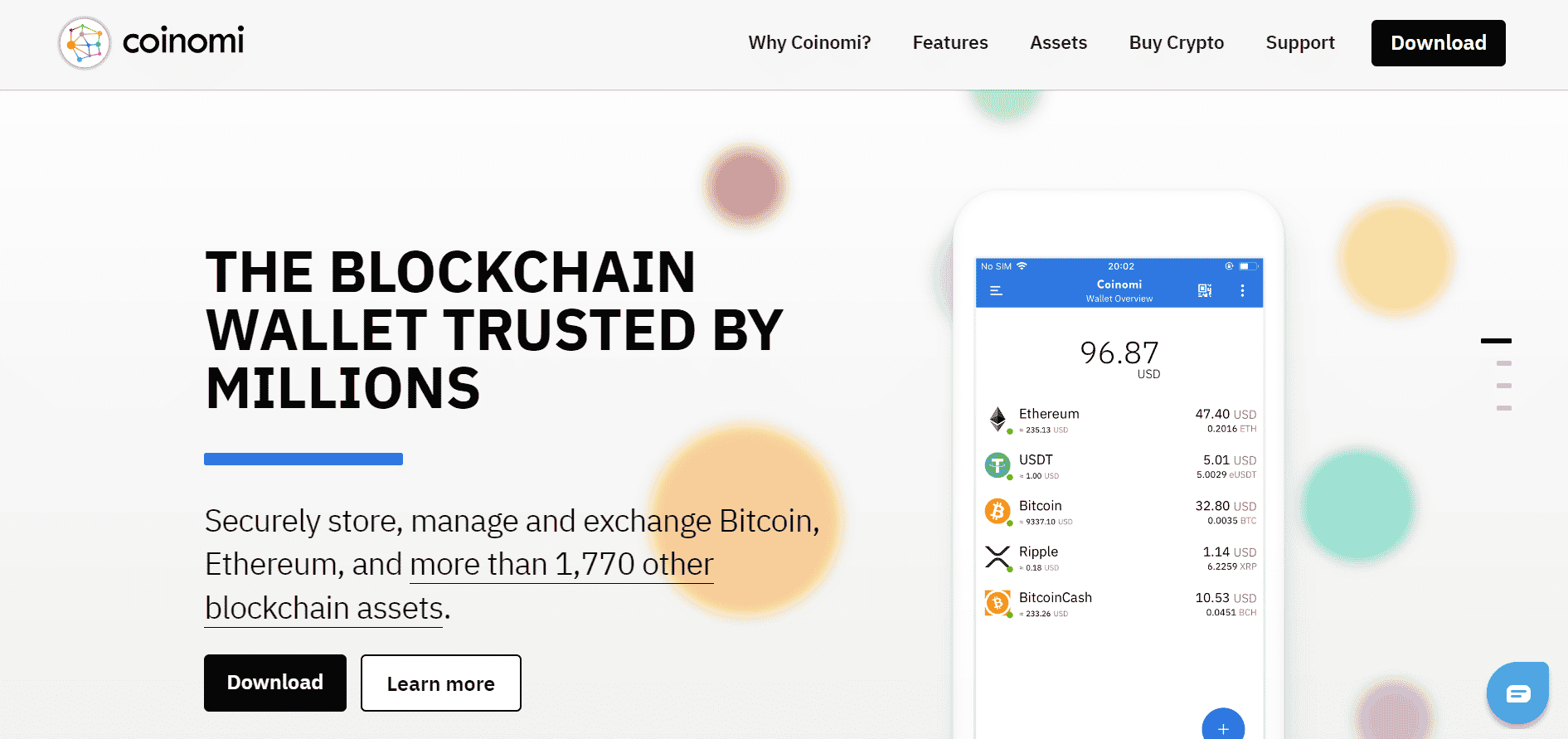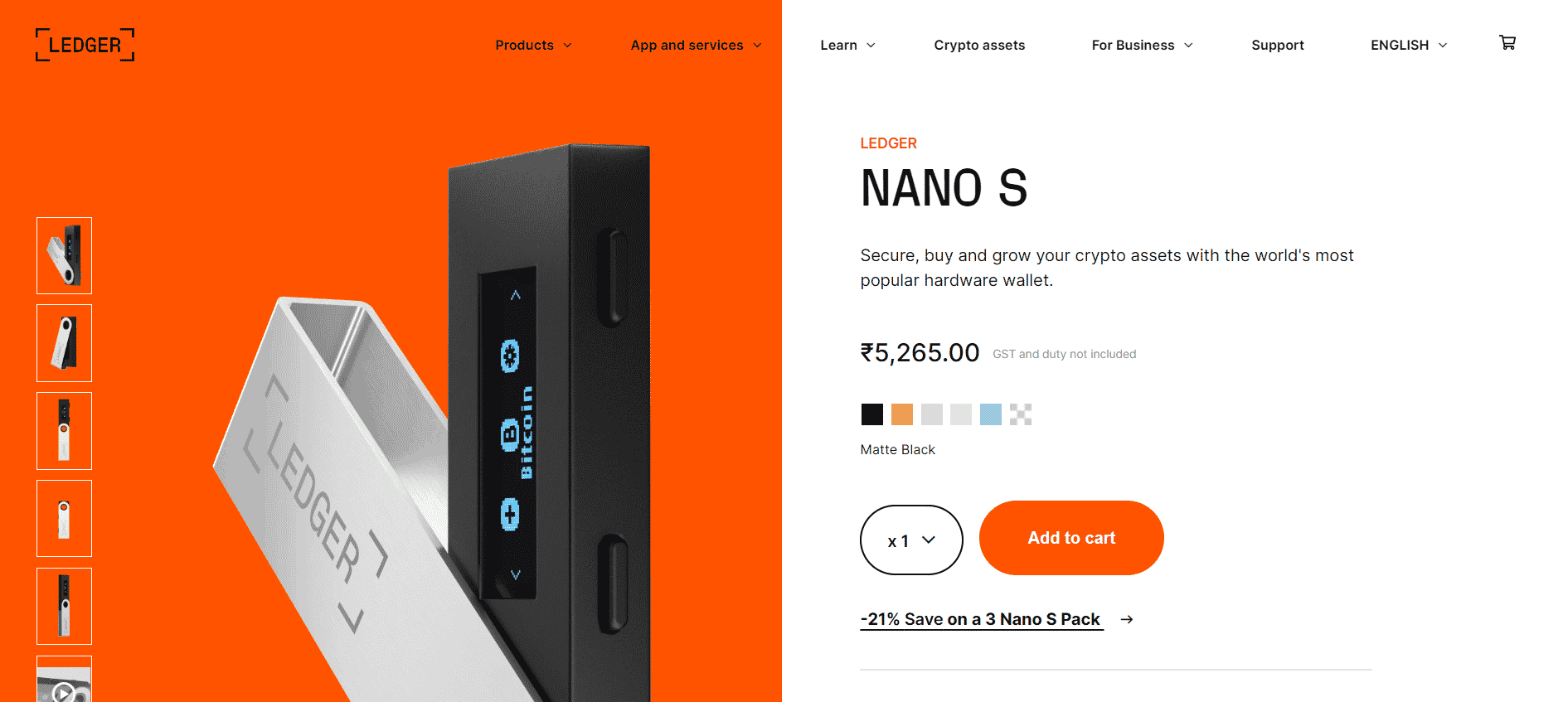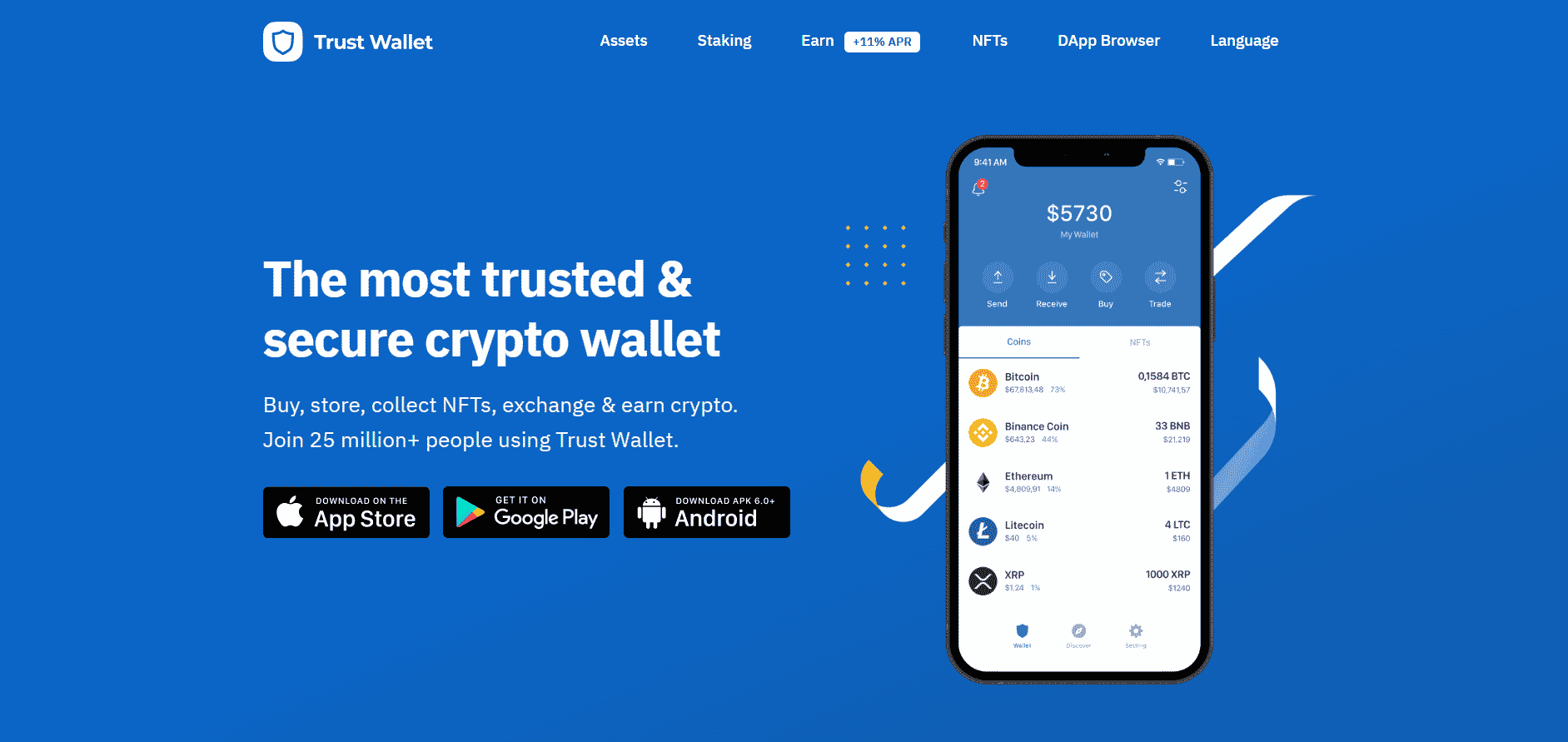And this blog post is a complete beginner’s guide to cryptocurrency. I am sure you will have fun learning more. So before diving into the main topic, it is important to have a proper understanding and knowledge of what cryptocurrencies are, their history, benefits, how to buy them, and many other vital topics related to them.
A Beginner’s Guide to Cryptocurrency
What is Cryptocurrency?
Cryptocurrency is a digital or virtual currency which controls the creation of new units to secure transactions through cryptography. Cryptocurrencies are decentralized, which means these coins are not backed by any government or financial institution of any country in the world. Cryptocurrency took birth in the year 2008. Unlike other fiat currencies, which governments and banks issue, cryptocurrencies operate independently of these centralized authorities through an electronic network known as blockchain technology. Cryptocurrencies have become a trending topic these days. The virtual coins are created through a process or program called mining. We need to have an idea about the popular platform to buy and sell Cryptocurrencies. How can one invest in them? What are the risks involved? How do prices fluctuate? This is a complete beginner’s guide to cryptocurrency where we will educate you on everything you need to know about these lucrative altcoins. This guide will provide you with complete knowledge about Cryptocurrencies and help you understand why it matters today more than ever before. In addition, you will learn how to buy, sell, and trade cryptocurrencies and how to protect your investment from risks. So don’t miss out on the opportunity! It’s time for you to get your hands on a crypto marketplace.
History of Cryptocurrency: Who created it and how it came?
The mystery of who created cryptocurrency is pretty ambiguous. It has been like a needle in a haystack, but it seems that the search may finally be coming to an end. Experts say that a person or a group named Satoshi Nakamoto is responsible for developing this revolutionary digital currency. He began working on his revolutionary code that would eventually serve as the backbone in 2007 and 2008 when he released a whitepaper for this cryptocurrency and its original software reference implementation (the program which set forth all technical standards). Today there are an estimated 10,000+ cryptocurrencies in the market including Bitcoin, Ethereum, Co-trader, Stellar, Litecoin and many others. Bitcoin; amongst all is the most valued and considered the largest cryptocurrency. According to CoinMarketCap, it is observed that bitcoin’s market capitalization is almost $900 billion. The second in size is Ethereum, less than $500 billion. It is not just some crazy inflationary currency like dollars or euros; these virtual coins are stored on digital ledgers called ‘wallets’, which can be accessed using an encrypted PIN (or private key) generated specifically during registration time online from your wallet provider storehouse account balance so that only you can access spending funds inside these wallets. As the story unfolds, many countries used gold and silver as standard currency, during the 19th and 20th centuries. This idea of a currency based on gold or other precious metals was more prevalent when countries witnessed financial crises during wars. However, from the 1920s until 1970, most nations abandoned this standard for various reasons; including an inability to produce enough goods to meet economic demands while funding two world wars that were fought between 1914 and 1945. Physical valuables were once traded for commodities and services. They were bulky and burdensome to carry or store away from their places of origin. Adding to this, the 2008-2009 financial crisis was one of the major crises where many banks across the world needed financial aid from the government. They were who were willing and able to pay out large sums to these banking institutions to let them operate without any obstruction rather than shutting down altogether, which would have caused an even greater amount of economic damage if left unchecked. Bank failures and bailouts are something that no country would ever want to encounter. Even in the worst times, it would be wrong for banking systems to go down because they cannot protect our funds or ensure stability when people rely on them the most.
Benefits of cryptocurrencies
However, here are some major benefits of cryptocurrencies in today’s market. Let’s emphasize the three major aspects:
Security: Cryptography secures transactions, making them difficult to hack. Anonymity: Transactions can be made anonymously, appealing to some users. Decentralization: Unlike traditional currencies, cryptocurrencies are not controlled by any government or financial institution. This makes them more resistant to censorship and manipulation.
Digital assets are one of the most revolutionary inventions in recent times based on the electronic cash system that allows you to transfer money over computer networks without relying on banks or other third parties. The beauty behind this revolutionary invention has made many people interested both domestically & internationally, but what exactly goes down inside those inner workings.
How to get started with cryptocurrency?
As cryptocurrencies have become more popular and made many people rich, many people are looking to invest in them. One way of doing this is to hire a broker or agent to help you invest in crypto through a reliable crypto exchange, or read helpful articles like these and get started with investing in virtual currencies for the long or short term. All the cryptocurrencies are available for anyone to buy. Cryptocurrency exchanges are the way to buy crypto assets. These exchanges offer a lot of different cryptocurrencies and allow users access to an online wallet similar to banking accounts, but this time backed by personal keys instead of passwords or pins. Isn’t that what you were looking for? Bitmart, an exchange hacked in July 2018, resulted in $150 million worth of cryptocurrency losses. However, the company’s insurance may cover this event! Also Read: 11 Best Cryptocurrency Apps
How to buy cryptocurrency safely?
Using our beginner’s guide to Cryptocurrency, you can securely invest in cryptocurrencies by following a few steps. Here are four essential steps that need to be followed while you plan to invest in cryptocurrencies:
- Where to buy from? Centralized exchanges are a popular way to buy cryptocurrency, especially when it is for beginners. These platforms act as third-party overseeing transactions and offer customers confidence that they are getting what is being sold at market rates, which means the exchange makes money off fees associated with services like withdrawals or deposits (or even just providing the information). The crypto world is all about choice. With established online brokers like Robinhood and Webull, you have plenty to choose from when it comes down to where you want to invest; but if we are talking about pure-play exchanges such as Coinbase or Gemini (which don’t offer stocks & bonds), then these platforms typically give more attention to cryptocurrencies themselves rather than other asset classes like stocks/bonds that are found on traditional brokerages websites. Centralized exchanges are the most popular way to buy, sell, hold, and trade cryptocurrencies, but they also have vulnerabilities that hackers can exploit. Nevertheless, more advanced traders who want low price trades with decentralized platforms might be an option worth considering!
- Choose how to pay Some of the most popular cryptocurrencies are available to be purchased in fiat currencies, such as USD, EUR, INR, and many others. If you’re a newbie or haven’t traded in cryptocurrencies before, one good idea would be to use the regular money while getting acquainted with all its features, especially if you’re looking for ways to buy more coins at once. However, if you are experienced with the crypto world, you may want to invest some of your existing crypto coins in another type of cryptocurrency. For example an exchange of Bitcoin and Ethereum.
- Add value to your account Some exchanges allow you to fund your account with fiat currency, while others prefer the safer and more reliable debit or bank transfer. However, this must be done carefully because cryptocurrencies are very risky assets that might decline significantly during bear markets as well. So there will be interest costs added onto losses if the prices go down later, making them even costlier than just buying outright without utilizing any loans from banks. You can trade your cryptocurrencies on a variety of exchanges. Just be sure that the exchange allows trading between different coins and tokens before you start investing in them because not all assets are compatible with all the exchanges, so check out their site or ask questions through live chat if necessary. Also, note that exchange fees may vary from where you are purchasing and what you are buying.
- Select a proper cryptocurrency for your investment When you are ready to trade, just make sure that the platform allows trading between cryptocurrencies. Thorough research of the platform and crypto are necessary. Not all of them can be directly exchanged and some exchanges list more than others so it is important to find out which ones are matching your needs before signing up with an unknown exchange. The cryptocurrency world is changing rapidly. Today, more than 10,000 different digital currencies are in use, and many more are in the pipeline. To help you get started with your research into these cryptocurrencies, Bitcoin or Ethereum might be the right choice for whatever project may have inspired you.
How can you manage cryptocurrency risks?
Cryptocurrency is a high-risk investment that should only account for 10% of your overall portfolio. Also, make sure to invest the amount you can afford to lose while investing in any of these altcoins. In every beginner’s guide to Cryptocurrency, beginner investors are advised to have an experienced financial advisor who understands cryptocurrency. Suppose you have debt or are saving money for retirement. In that case, it may be best to first shore up those funds before investing any more capital into cryptocurrency markets because you can’t predict what will happen in the future. If you are looking for a way to protect your crypto portfolio from drops in value, diversifying investments can be helpful. By buying more than one type of cryptocurrency and holding them over different periods (for example; one-month bills), it becomes easier even when the volatility index of the market is high. But the question is how to diversify your investments in cryptocurrencies? Do not invest in any cryptocurrency, but always do extensive research when you put a portion of your hard-earned money into these digital assets. Digital coins often come with a specific technological product being developed or rolled out and because of this, there are many risks that investors might not know beforehand, which means they should always be cautious before investing any funds into these types of coins/tokens. As the sole purpose of this beginner’s guide to cryptocurrency is to educate the readers about the upsides and downsides of cryptocurrencies. The future of cryptocurrency is looking bright, with many projects succeeding in integrating these virtual assets. Consumers are becoming more aware and confident about crypto investments as time goes on; even though there have been many ups and downs throughout this market.
How can you keep Crypto safe?
Deciding how you must store your crypto is important because evidently, you would not want any hacker to get control over them. So, keep them safe and secure in the cryptocurrency wallet However, multiple types of cryptocurrency wallets are available that help you keep your digital assets secured such as hardware wallets or paper Wallets that contain private keys onsite but also come with their unique risks like getting lost. It ultimately depends on what’s most comfortable so do some research before committing.
- On platform storage: Current trends indicate that people want to keep their cryptocurrency on an exchange or wallet they have opted for. This has some advantages, like outsourcing the complexities and expertise involved in managing private keys; you don’t have to track them yourself after all. The drawback is if there’s a security breach outside your control (like when hackers get access), then valuable funds could be lost, and there might be fewer future opportunities to trade.
- Non-Custodial Wallets: Crypto wallets are a hot topic these days. Most investors choose to keep their funds in a crypto wallet rather than storing them in cold storage. For those who want more security and privacy without sacrificing convenience or accessibility or both. There is always the option of making use of what’s known as ‘non-custodial’ wallet services which allows you wallet access even when away from your computer. Cryptocurrencies are not only legal in the United States, but they are also an excellent way to invest your money with complete security and peace of mind if done through a reliable crypto exchange. Unfortunately, some countries have a suspicious outlook toward these virtual currencies. Cryptocurrency will ultimately be determined by what an individual nation decides. However, there is no question that most will not ban them as taxes can still get collected on any transactions made using these coins or tokens (which usually end up being pretty low). The first cryptocurrency was introduced in 2009 and called Bitcoin. It’s different from traditional currencies because there is no requirement for it to be accepted as legal tender across most places; instead, individual countries are taking various approaches towards Bitcoin, like El Salvador, which became the first countrywide adoption of this new technology with their law on digital assets becoming effective January 1, 2021. When you trade any cryptocurrency, the IRS will tax the profits you booked. You should be paid in dollars and taxed according to how much of an investment was made and the amount you withdraw from the crypto wallet. Plus, you will be also rewarded for activities like mining, which can produce valuable coins without costing you anything (only the mining cost is involved) Also Read: 23 Best Cryptocurrency Affiliate Programs
Why are cryptocurrencies so popular?
Cryptocurrencies are the future. They allow you to transfer the digital value online without relying on a central counterparty, such as your bank or credit card company; they also facilitate quick global transfers that can be done 24/7 every day and at any time in between. The best part is you are anonymous while doing so; no more worrying about being tracked by governments because all transactions go through encrypted channels which protect both the parties’ personal information from getting exposed.
Top five most popular cryptocurrencies
In this beginner’s guide to Cryptocurrency, here is a list of the five most popular cryptocurrencies that are widely used and are much safer and more secure when you plan to invest:
1. Bitcoin
Bitcoin is the world’s highly used cryptocurrency and probably a hot topic in the market these days. Bitcoin is a cryptocurrency that uses an algorithm. Bitcoin comes from a program called Mining, which involves solving mathematical challenges that other users can verify on the network for them to earn new Bitcoins. So it is not just about generating new Bitcoins anymore, it also depends on how much you want them. The system keeps track of transactions between other Bitcoin accounts worldwide, so it always reflects real-world exchange rates with fiat currencies like dollars (USD). The Bitcoin blockchain is a transferable digital recording of the network’s history that cannot be copied or modified. This ensures that unlike most digital data, which are freely copied and modifiable, bitcoins cannot be altered because they are scarce, divisible, and transferrable. They also serve as money for users all around the world.
2. Dogecoin
Like Bitcoin, Dogecoin is a digital currency. However, it started as an internet joke designed to mock the popularity of bitcoins based on this popular dog meme that everyone seemed excited about back then (when people were vaping). Unlike BTC, though, which was created with scarcity in mind, Doge has many coins available because developers didn’t want them just being printed out by miners.
3. Ethereum
Ethereum is a cryptocurrency that can be used as an investment or store of value in financial transactions. It also performs computations during the mining process to make sure everything runs smoothly on the decentralized network called ‘Ethereum Blockchain’. Ethereum revolutionized the crypto world by allowing people to execute financial transactions, store their money in an investment vehicle and even create derivatives trading protocols on this blockchain network.
4. Litecoin
Litecoin is a cryptocurrency that was created to be faster and cheaper than Bitcoin. More than 84 million coins are produced till March 2022 in contrast to bitcoin’s limited supply, which stands at 21 million, making it a popular choice among traders who want easy storage for their investments as well. In addition, the founder ensured Litecoins prioritized transaction speed by amalgamating specifically designed around this feature.
5. Stellar Lumens
The world of cryptocurrencies is complex, with many coins and tokens on the market. However, there is something missing from this scene. A coin that acts both as digital money and can be used for international transactions between banks without any fees. That all changes now, thanks to Stellar Lumens or XLM, which will provide users access across borders and allow people to trade in multiple currencies at low costs like never before. However, according to their website, it was stated that Lumens are limited and cannot be mined, so there will only ever be 50 billion of them in circulation. Also Read: 17 Best Cryptocurrency to Mine
What are Multi-crypto wallets?
While learning about crypto for beginners, it is important to learn about multi-crypto wallets too. Multi-currency crypto wallets are great for storing multiple cryptocurrencies in one place. These types of cryptocurrency wallet support both public and private keys, which mean, you can hold and operate more than just your favorite coin. It is all here waiting for when the time comes! The cryptocurrency wallet is your key to security in the ever-changing world of cryptocurrencies. It is not just any old piggy bank. It grants you access and control, allowing for transactions to occur between peers on an open network without intermediaries like banks or third parties. You don’t want to get stuck with an illegal cryptocurrency wallet that can steal your money or force you to fall into their fraudulent trap, so make sure the top-rated multi currency wallets are used for storing your digital assets. These reliable platforms will keep all of your digital assets secure and out of reach from hackers & other threats. We will continue this beginner’s guide to Cryptocurrency with a list of the top 10 Multi-crypto wallets for you. Let us dive in!
1. Exodus
With a sleek, user-friendly interface and easy access to over 100 cryptocurrencies from just one platform, Exodus is the perfect choice for beginners looking into trading or investing in crypto. The best part is, it is free! The platform has been designed with your security in mind and can even protect you from losing access to private keys. With one-click trading options, this wallet makes it easy for investors of all experience levels to invest quickly without struggling or worrying about technical know-how. Exodus doesn’t take a cut for them to ensure the security of their users’ funds. Instead, they pass on every transaction fee from exchange through ShapeShift into another wallet where it becomes part of your holdings, just like any other crypto.
2. Coinomi
Coinomi is one of the oldest and most innovative, most trusted crypto wallets with over 2.5 million users worldwide, but do you know how it can help your business? Coinomi has been in operation since 2014. They offer native support for 1500+ cryptocurrencies and more than 125 blockchains while implementing the most substantial security measures to ensure stability across all platforms they operate on. Coin miners have been on an upswing lately. As such, we are getting fewer questions about our product or service from them via email newsletter subscriptions, which means there are many potential customers out sugarcoating looking for some informative material to read instead (and maybe even buy).
3. StormGain
With its user-friendly interface, StormGain is the perfect platform for novice crypto investors or traders to dive into this new investment world. The process of registration was seamless with no hassle at all because it is integrated right into one best-known exchange service that offers an incentive system.
4. Trezor
In an age where security is a top priority, Trezor stands out as one of the most secure wallets globally. Trezor is a hardware wallet that helps you sign transactions without worrying about trusting third parties. The device generates 24 words of randomness, which are all serial numbers and no letters or digits alike. In addition, the device creates isolation by wiping all data after being accessed for just two minutes without connecting to Wi-Fi or proximity sensors; which makes sure no outsider can compromise your funds in case something goes wrong with either theft or compromised software. Also Read: 16 Best Cryptocurrency Brokers
5. Coinbase
In 2012, a new company called Coinbase was founded in San Francisco to create an easy-to-use digital wallet for storing bitcoins. It has grown exponentially since then and now operates globally. The motto of this popular platform is ‘simplest ways possible’ which includes being transparent about finances by letting you know how much money goes into each transaction & amp; what kind of security measures are to be taken. Founded by Fred Ehrsam after being inspired by Bitcoin headaches during its early days, Coinbase now processes more than $10 billion worth (monthly) in trades and has 50 million users worldwide.
6. Binance Wallet
Binance is a cryptocurrency exchange and a wallet that allows you to store, trade, or transfer an array of altcoins. The excellent reputation makes it safe for traders who want access to certain features like withdrawing money from the platform’s ATMs (but not others). The Binance Wallet is a secure and reliable cryptocurrency exchange. The excellent reputation it has makes the platform safe for all traders who use its services, which includes verifying your identity with specific withdrawal or trading features depending on what needs one may have when using this app. Owner Cannon Broaa Views says, this process requires verification because he doesn’t want criminals hacking into his users’ accounts; however, some people might find themselves turned off by such strict security measures put forth to maintain user safety, especially when there are alternatives available on.
7. Ledger Nano S
Ledger Nano S is a hardware wallet that can run multiple apps and has no risk of private keys being exposed to the Internet. In addition, it is relatively affordable, unhackable malware-proofed with an OLED display for clear transactions in Ethereum or Bitcoin form. This USB-sized crypto hardware wallet looks similar to a flash drive and can store information offline, making it an excellent choice in dangerous environments where web browsing may be risky due to its volatility or jurisdiction restrictions that prevent internet banking services from operating freely (for instance, North Korea). The product was created by French company Ledger Inc., which has made security its top priority since day 1. This includes physical protection as well as digital encryption so your funds are safe no matter what happens.
8. Trust Wallet
Trust Wallet is one of the most trusted and secure crypto wallets in today’s market. One can access this platform on iOS, Android & Web-based devices! This amazing wallet lets you manage your funds and facilitates tracking prices as well away from any hackers or fraudsters. It has the unique ability to integrate ‘staking’ across different coins so that users earn massive commissions simply by storing them here. The magnificent platform lets you manage multiple cryptocurrencies all within reach with its easy navigation features like price tracking away from fraudsters or hackers, so your funds stay safe no matter what happens,
9. WazirX
The most trusted wallet for Indian crypto traders is now available on your doorstep! WazirX has over 8 million users’ thanks in part to being acquired by Binance last year. The multi-cryptocurrency platform allows you to securely store hundreds of altcoins and boast 2-factor authentication or OTP-based authentications, enhancing its security features even further so that no one can easily steal them. This provides peace of mind knowing that no third party can access your funds and boosts their value by ensuring they won’t be spent without being verified first through an authenticator app like Google Authenticator or Authy which gives you 2FA protection everywhere, including social media sites.
10. Atomic Wallet
Atomic Wallet is a highly trusted wallet integrated with many other platforms to carry out 300+ crypto assets, yes, all under one roof. The platform has its eponymous token named AWC that enables you to exchange your coins and get discounts on exchanges while holding them in the only competitively priced product of its kind, without sacrificing convenience or safety. You can also use these funds for buying products from vendors inside Atomic’s marketplace (though not via credit card). And best yet? They offer an affiliate program meaning anyone who brings new customers will be rewarded financially as well. There’s never been a better time to diversify your crypto portfolio! Multi-currency wallets make it easy for investors, no matter the size or value of their investments in cash currencies like dollars and euros. This enhances the security of all traders, short term and long term. Also Read: 12 Best Penny Cryptocurrency to Invest
Pros and Cons of cryptocurrency
While learning about cryptocurrencies, it is important to know why people believe in these virtual assets, while for others it might be a reason to worry. No beginner’s guide to Cryptocurrency will be complete without looking at the pros and cons of cryptocurrency and here they are: Cryptocurrency Pros Some people are excited about cryptocurrencies because they see them as a way to reduce inflation and give democracy back to the people.
Cryptocurrencies like Bitcoin, Ethereum, Litecoin, Cardano, etc., are gaining a lot of attention from investors and people alike. The idea behind this new formless currency could become more valuable than gold, which makes it appealing for many investors as they think it is the right time to enter the crypto market before their investment skyrockets in value! Cryptocurrency is backed by blockchain which is a decentralized processing and recording system. The security is better than traditional payment systems, which can be hacked or defective at any time, unlike blockchain technology.
Crypto staking allows you to use your cryptocurrency as collateral on blockchains. Then, by the time the transactions occur, they are verified by nodes in exchange for acknowledging them and allowing an individual’s holdings to grow without any additional investment. Cryptocurrency Cons Cryptocurrency projects are often experimental and as a result, investors have yet to find their footing. If the underlying idea behind cryptocurrency does not reach its potential long-term investors; they may never see their returns come through. It is important for those who invest in this space to keep an open mind as unforeseen returns are expected in this highly volatile market.
Crypto is volatile. The prices of cryptocurrencies fluctuate rapidly, with some people making money quickly by buying in at the right time but others losing all their funds on what looks like an open market only to find out later that this was just before a crash which could have been prevented had they acted sooner or not. Cryptocurrencies are still essentially an unknown currency that many governments have not yet decided how to regulate. This means there is potential for regulatory changes and crackdowns, which could affect prices in unpredictable ways. One of the main concerns with cryptocurrencies is that investors may not be able to use them for their intended purpose if they cannot predict how much a coin or token will be worth on any given day.
The mining process of Bitcoin and other cryptocurrencies uses a lot more energy than it should. This is because they use complicated technology that demands high-end hardware, which in turn consumes plenty of electricity to run smoothly for an extended period from start-up until closure. However, there are some coins with less demanding algorithms that you can mine if your PC isn’t powerful enough. Cryptocurrency for beginners can be a daunting topic. That’s why we have come up with the beginner’s guide to Cryptocurrency to outline minute details about cryptocurrency and how you can jump into this lucrative pool. We also answered some common questions about bitcoin and other digital currencies to increase your understanding of all the digital coins. If you still have questions after reading this blog, feel free to reach out to us or one of our recommended resources if you want help getting started! Thanks for following us, and happy trading!

















